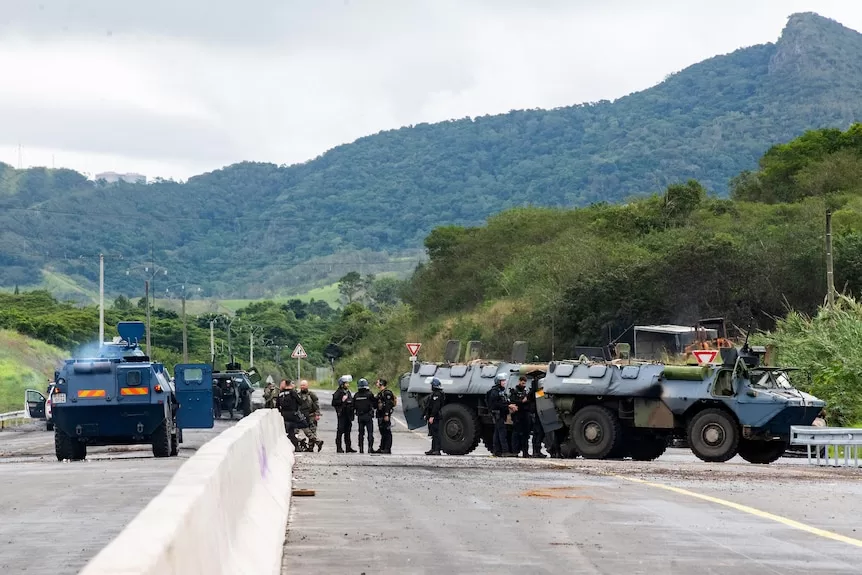New Caledonia’s international airport will reopen to commercial flights today after weeks of violent protests forced it to shut, with an overnight curfew also being shortened as the unrest eases.
The French territory’s high commissioner, Louis Le Franc, announced on Sunday that La Tontuota airport — which links the capital Noumea to Sydney, Tokyo, Singapore and the Pacific — would reopen on Monday.
The high commissioner said daytime traffic had been restored on the highway linking the airport to the capital.
The road had been the site of more than 60 barricades erected by protesters, with hundreds of French gendarmes tasked with removing them in recent weeks.
The international airport had been closed for more than a month, forcing Australia and France to fly out people stranded in New Caledonia on evacuation flights.
Curfew shortened
An overnight curfew remains in place but will start at 8pm instead of 6pm from today because of “the improvement in the situation and in order to facilitate the gradual return of normal life”, Mr Le Franc said.
A ban on the sale of alcohol and weapons remains in place.
Nine people including two gendarmes were killed in the violent riots that flared in early May over controversial voting reforms proposed by the French government.
The plan, which would give voting rights to thousands more people who had been residents of New Caledonia for at least 10 years, sparked deep concern.
Some people were worried the plans would dilute the Indigenous Kanak vote, while pro-independence groups feared it would spell the end of their push for autonomy from France.
Homes and businesses were looted and destroyed, with barricades erected across the territory by pro-independence and Kanak supporters as well as locals trying to defend their properties amid the violence.
French President Emmanuel Macron announced last week that the plans had been “suspended” after he called a snap election following his party’s heavy defeat at the European Parliament elections.
Mr Macron said he had made the decision in order to provide clarity and to “give full voice to local dialogue and the restoration of order” after weeks of unrest.
A joint sitting of both houses of the French parliament was needed to bring the changes into law, but both had been dissolved due to the election being called.
